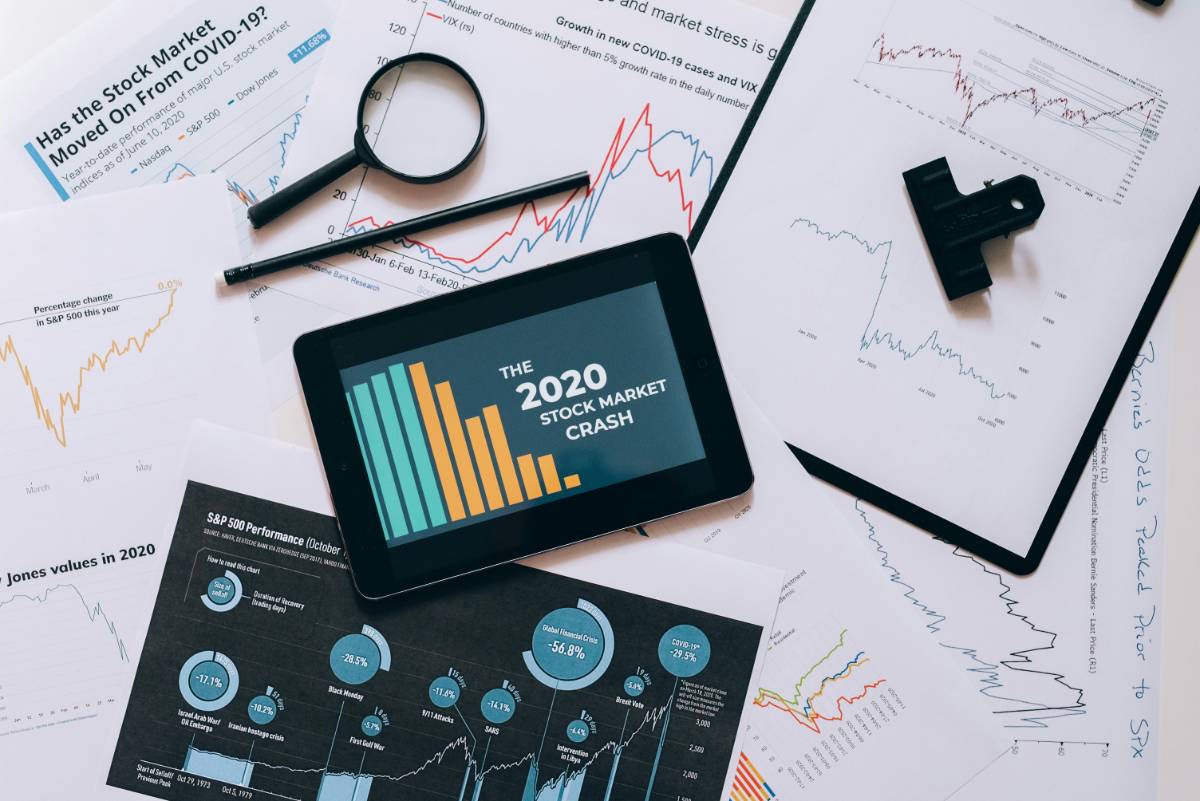
Tax Implications of Investing in ETFs and Mutual Funds
 By Anita Singh
By Anita SinghInvesting in ETFs and mutual funds can generate wealth, but understanding the tax implications is essential for maximizing returns. Different tax treatments apply depending on how and where you invest.
Capital Gains Taxes
When you sell ETFs or mutual fund shares for a profit, you may owe capital gains taxes. Short-term gains (held under a year) are taxed at ordinary income rates, while long-term gains benefit from lower tax rates.
Holding investments for longer can reduce tax burdens.
Dividend Taxation
ETFs and mutual funds often distribute dividends. Qualified dividends receive favorable tax treatment, while non-qualified dividends are taxed as ordinary income.
Understanding the nature of dividends helps optimize tax efficiency.
Tax Efficiency of ETFs vs. Mutual Funds
ETFs are generally more tax-efficient than mutual funds due to their unique structure. They use in-kind transactions, reducing capital gains distributions to investors. Mutual funds, however, distribute taxable gains even if you haven’t sold your shares.

Choosing ETFs may lower tax liabilities compared to actively managed mutual funds.
Tax-Advantaged Accounts
Investing in ETFs and mutual funds through tax-advantaged accounts like IRAs or 401(k)s can defer or eliminate taxes on gains and dividends.
Maximizing contributions to these accounts can enhance long-term wealth growth.
You might also like
1. Top Gainers and Losers on Wall Street This Month2. How to Build and Improve Your Credit Score3. Best High-Yield Savings Accounts in the USA4. How Inflation Affects Your Savings and InvestmentsStrategies to Minimize Taxes
Tax-loss harvesting, investing in index ETFs, and strategically placing investments in taxable vs. tax-advantaged accounts can reduce tax burdens.

Smart tax planning can significantly improve after-tax investment returns.
Conclusion
Understanding the tax implications of ETFs and mutual funds is crucial for building a tax-efficient portfolio. By utilizing tax-advantaged accounts, holding long-term investments, and leveraging tax-efficient funds, investors can maximize their returns while minimizing tax liabilities.
About the author
 By Anita Singh
By Anita SinghAnita Singh is a seasoned finance writer with over 8 years of experience helping millennials and Gen Z take control of their money. With a background in economics and a passion for demystifying complex financial concepts, Ananya shares actionable tips on budgeting, investing, and building long-term wealth. Her mission is to make financial literacy accessible, relatable, and empowering — no jargon, just smart money moves.
More like this

Stock Buybacks: How They Influence Share Prices
Stock buybacks have become a common strategy for companies looking to boost share prices and reward investors. Understanding their impact can help investors make informed decisions.

Meme Stocks: Are They Making a Comeback?
Meme stocks took the financial world by storm in recent years, driven by online communities and retail investors. As market conditions shift, many wonder if these stocks are making a comeback.

Dividend Stocks vs. Growth Stocks: Where’s the Best Opportunity?
Investors often face a crucial decision when building their portfolios: Should they invest in dividend stocks for stability or growth stocks for higher returns? Understanding the differences can help in making the right choice based on financial goals and risk tolerance.

How Geopolitical Events Affect U.S. Stock Performance
Geopolitical events have a significant impact on the U.S. stock market, influencing investor sentiment, market volatility, and sector performance. Understanding these effects can help investors navigate uncertainty and make informed decisions.

AI and Automation: The Next Big Disruptors in the Stock Market
Artificial intelligence and automation are transforming industries, and the stock market is no exception. These technologies are reshaping investment strategies, trading mechanisms, and market dynamics at an unprecedented pace.

S&P 500 vs. Nasdaq: Where Should You Invest?
Investors often compare the S&P 500 and the Nasdaq when deciding where to allocate their funds. Understanding the differences between these indices can help you make a strategic investment choice based on your risk tolerance and financial goals.

Why Tech Stocks Are Leading the Market Again
Tech stocks are once again at the forefront of the market, driven by innovation, strong earnings, and investor optimism. As companies in the sector continue to expand their influence, understanding the reasons behind this surge can help investors make informed decisions.

The Impact of Federal Reserve Policies on the Stock Market
Federal Reserve policies play a crucial role in shaping the stock market. Interest rate decisions, quantitative easing, and regulatory measures directly impact investor sentiment and market performance. Understanding these effects can help traders and long-term investors navigate the evolving financial landscape.

Top Performing Stocks on Wall Street This Quarter
The latest quarter on Wall Street has seen significant movements, with some stocks outperforming expectations while others struggled to keep up. Understanding these trends can help investors make informed decisions moving forward.

U.S. Stock Market Outlook: What to Expect in 2025
As we move into 2025, investors are looking for insights into the U.S. stock market's potential trajectory. Market trends, economic policies, and global events will all play crucial roles in shaping investment opportunities.

Market Volatility: Should Investors Be Concerned?
Market volatility is a common concern for investors, especially in uncertain economic conditions. While fluctuations in stock prices can be unsettling, understanding the factors behind market swings can help investors navigate uncertain times with confidence.

Tech Stocks to Watch: Are We in Another Boom?
The technology sector has been a driving force in the stock market, and recent trends suggest another potential boom. With advancements in artificial intelligence, cloud computing, and semiconductor innovation, investors are eyeing key tech stocks for future growth.

How Federal Reserve Decisions Are Impacting U.S. Stocks
The Federal Reserve plays a crucial role in shaping the U.S. stock market. Interest rate adjustments, monetary policy shifts, and economic outlooks set by the Fed significantly influence market trends and investor sentiment.

Top Gainers and Losers on Wall Street This Month
The stock market is constantly shifting, with certain stocks outperforming while others struggle. This month, Wall Street has seen significant movements in both directions. Here’s a look at the top gainers and losers.

Latest Trends Shaping the U.S. Stock Market in 2025
The U.S. stock market is evolving rapidly, with new trends shaping investor strategies and market movements. Understanding these trends can help investors make informed decisions in 2025.

Emergency Funds: Why They’re Essential and How to Build One
An emergency fund is a crucial aspect of financial planning, providing a safety net for unexpected situations such as medical emergencies, car repairs, or sudden job loss. Having a well-established emergency fund can reduce stress and prevent you from going into debt when life’s unexpected events occur. In this article, we’ll explore why emergency funds are essential and how you can start building one today.



